Homemade Landscape Drainage Solutions: Protect Your Yard from Water Woes
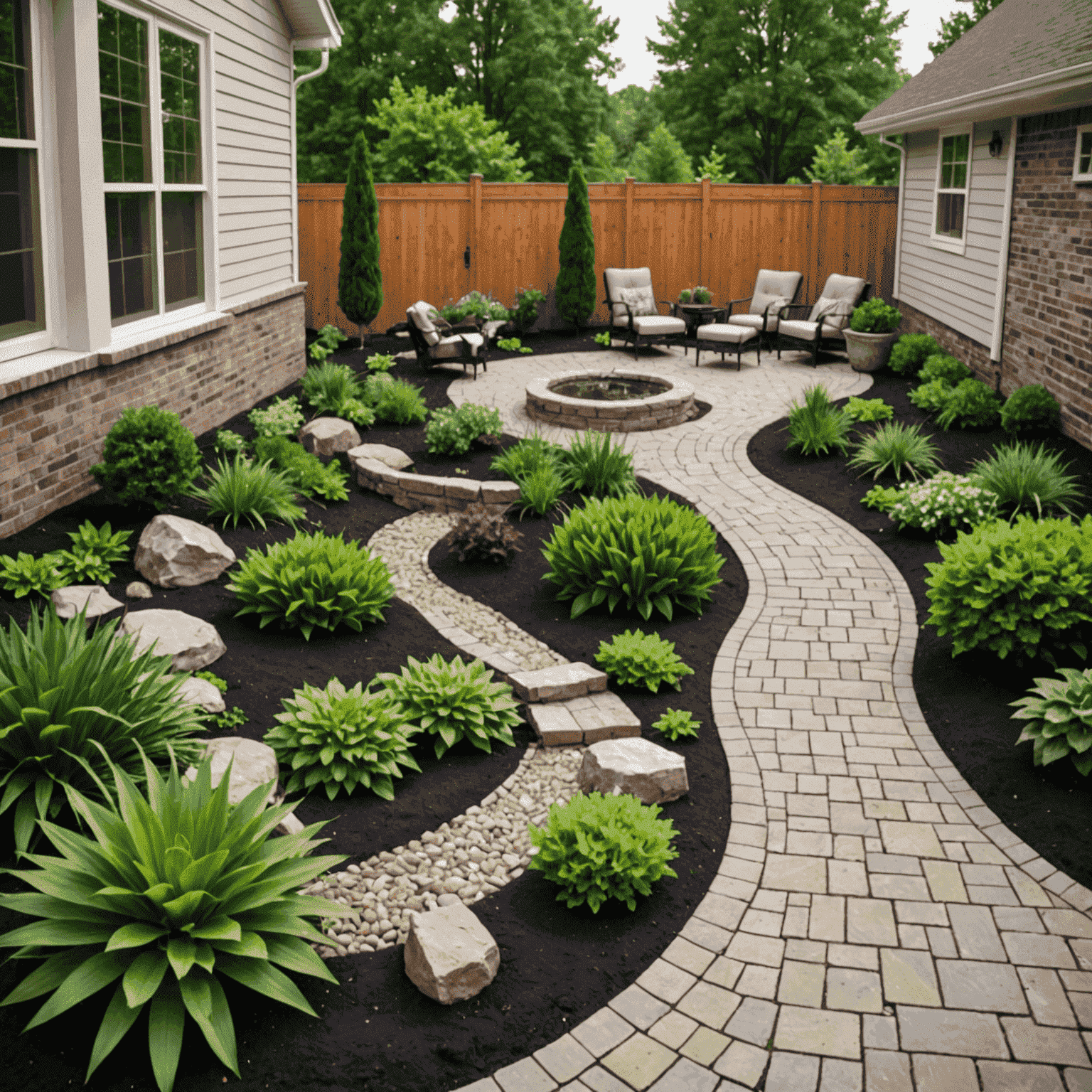
Are you tired of dealing with soggy spots in your yard or water pooling around your foundation? Don't worry! With these simple yet effective homemade drainage solutions, you can transform your landscape and protect your home from water damage.
1. Install a French Drain
A French drain is an excellent solution for redirecting water away from problem areas. Here's steps for install one:
- Dig a trench sloping away from your house, about 6 inches wide and 18-24 inches deep.
- Line the trench with landscape fabric to prevent soil from clogging the drain.
- Add a layer of gravel to the bottom of the trench.
- Place a perforated pipe on top of the gravel, ensuring it slopes away from your home.
- Cover the pipe with more gravel, then fold the landscape fabric over the top.
- Fill the remaining space with soil and cover with grass or other ground cover.
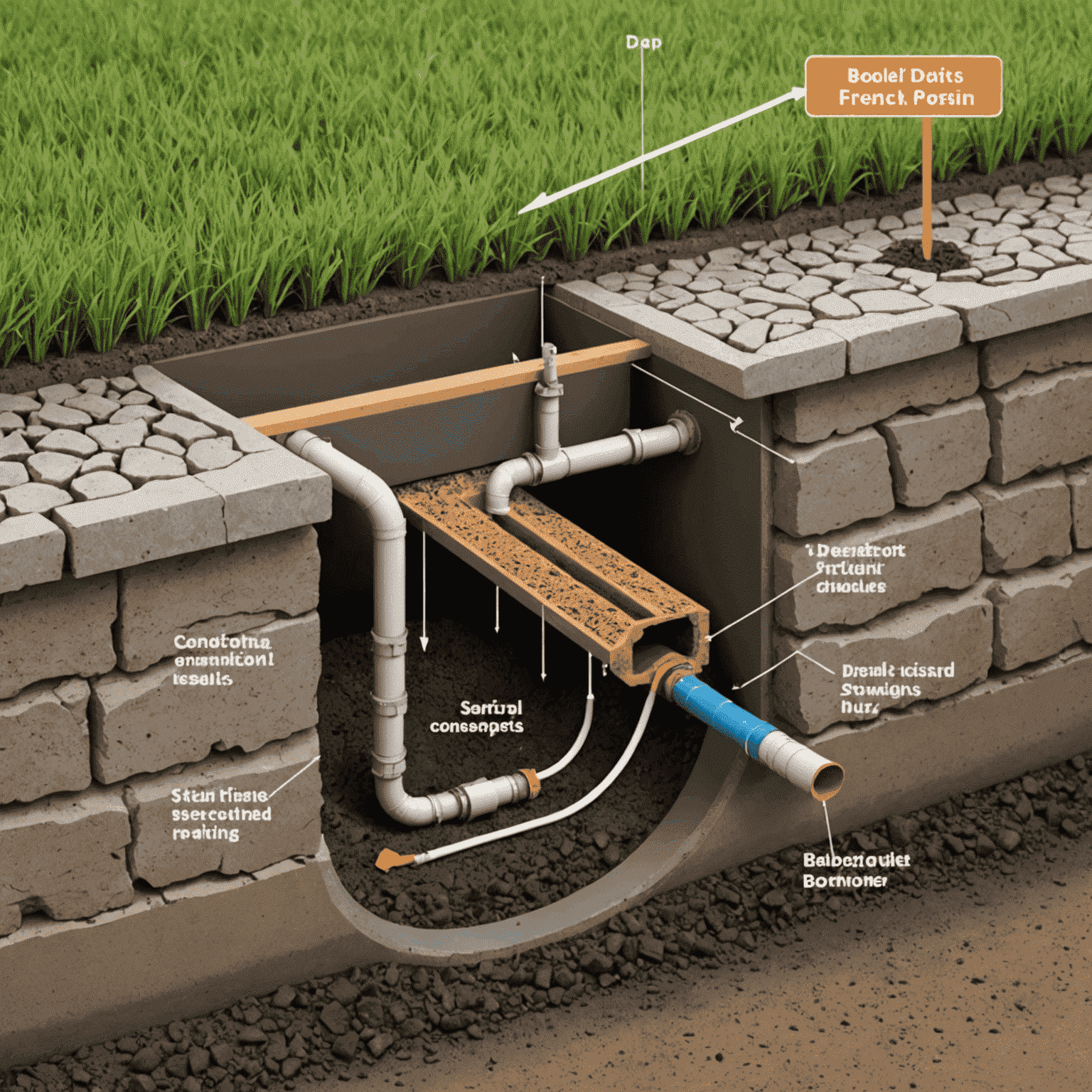
2. Create a Rain Garden
A rain garden is not only beautiful but also functional for managing excess water. Follow these steps:
- Choose a low spot in your yard, at least 10 feet away from your home's foundation.
- Dig a shallow depression, about 4-8 inches deep.
- Improve the soil by adding compost and sand to enhance drainage.
- Plant native species that tolerate both wet and dry conditions.
- Add a layer of mulch to retain moisture and prevent erosion.
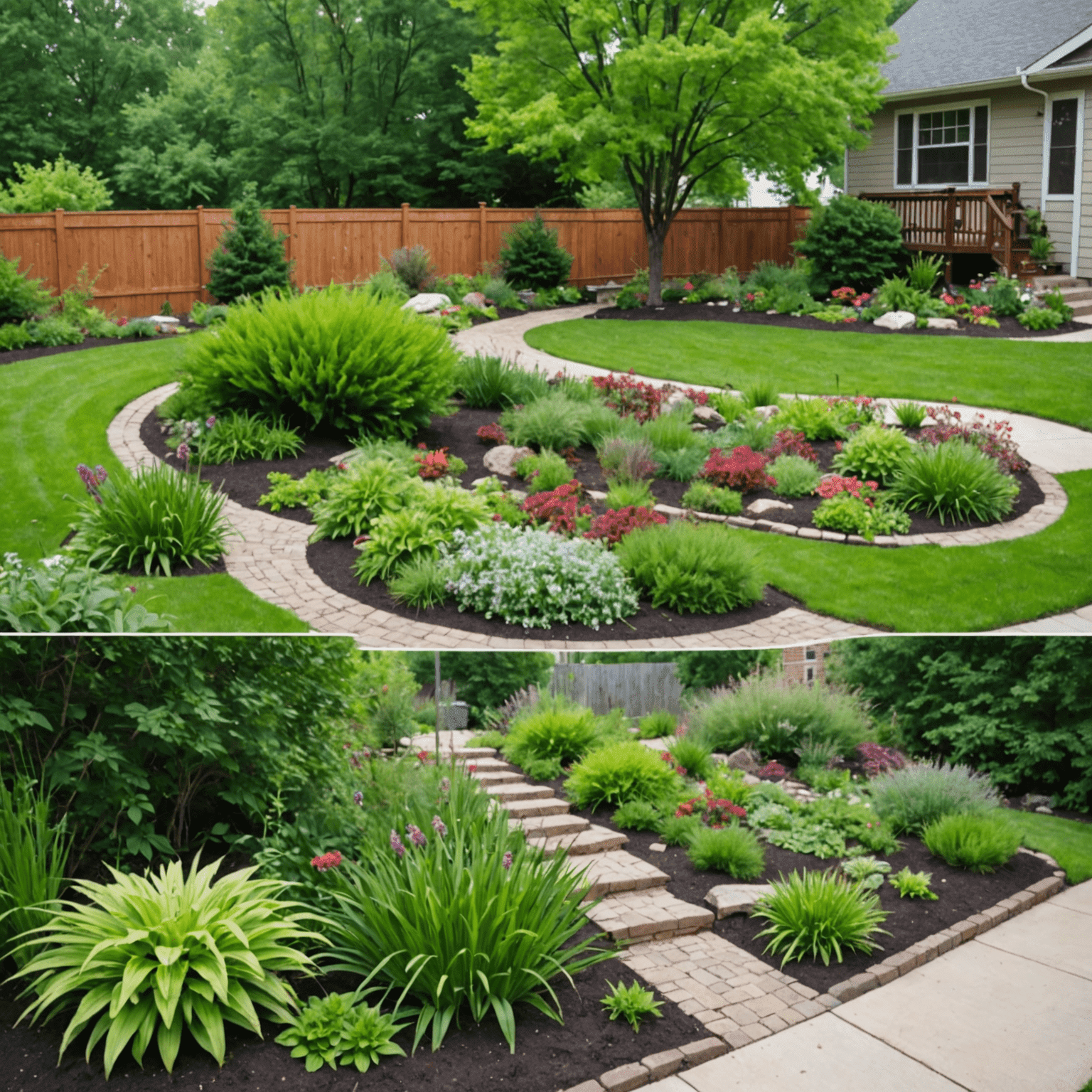
3. Implement Dry Creek Beds
Dry creek beds offer a natural-looking solution for guiding water away from problem areas:
- Plan the path of your dry creek bed, following the natural slope of your yard.
- Dig a shallow trench, about 4-6 inches deep and 2-3 feet wide.
- Line the trench with landscape fabric to prevent weed growth.
- Add a layer of gravel or river rocks of varying sizes.
- Place larger rocks along the edges to create a natural look.
- Plant water-loving plants along the edges to enhance the natural appearance.
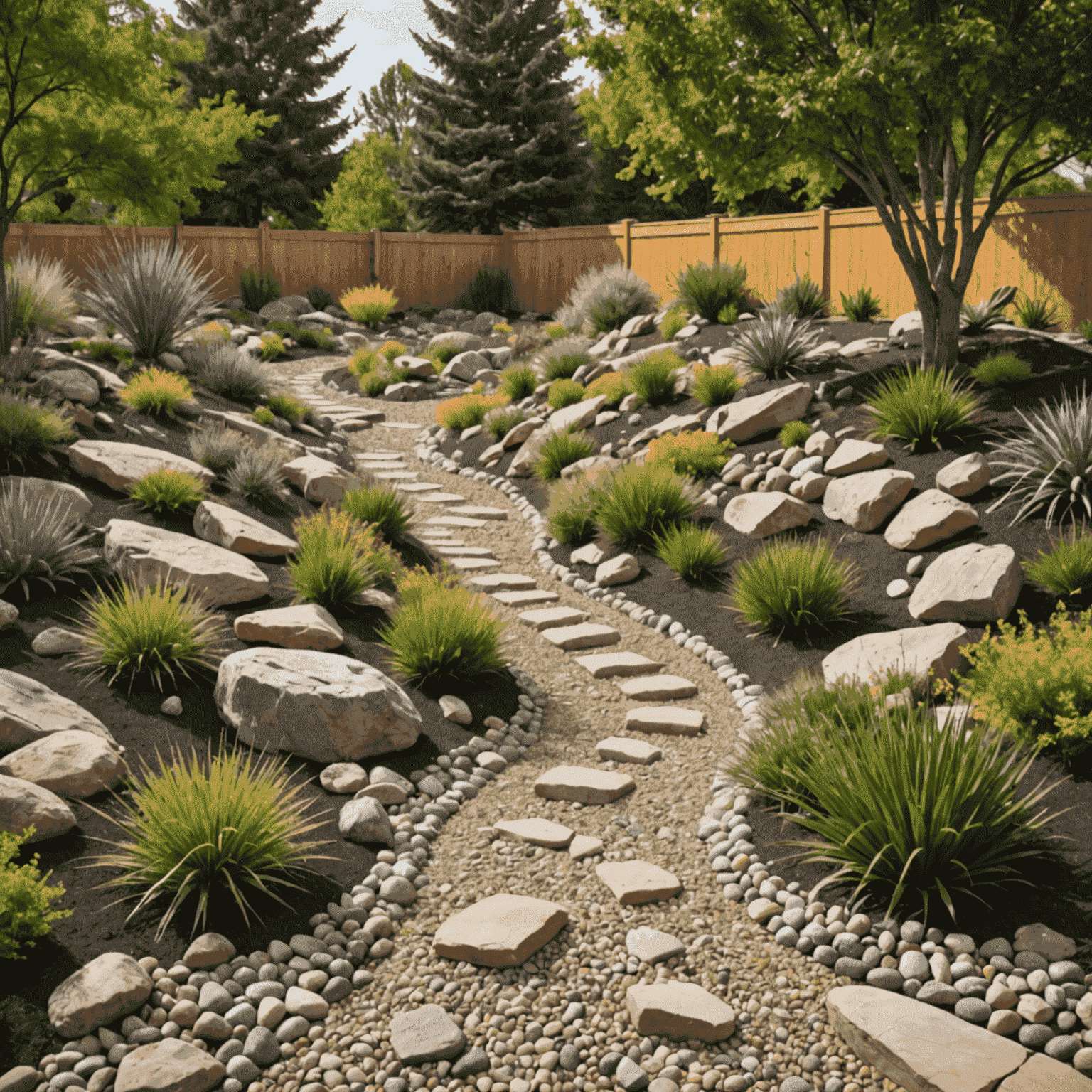
4. Improve Gutter and Downspout Efficiency
Don't forget about your home's first line of defense against water - the gutter system:
- Clean gutters regularly to ensure proper water flow.
- Install gutter guards to prevent debris buildup.
- Extend downspouts at least 4-5 feet away from your foundation.
- Consider installing rain barrels to collect and reuse rainwater for gardening.
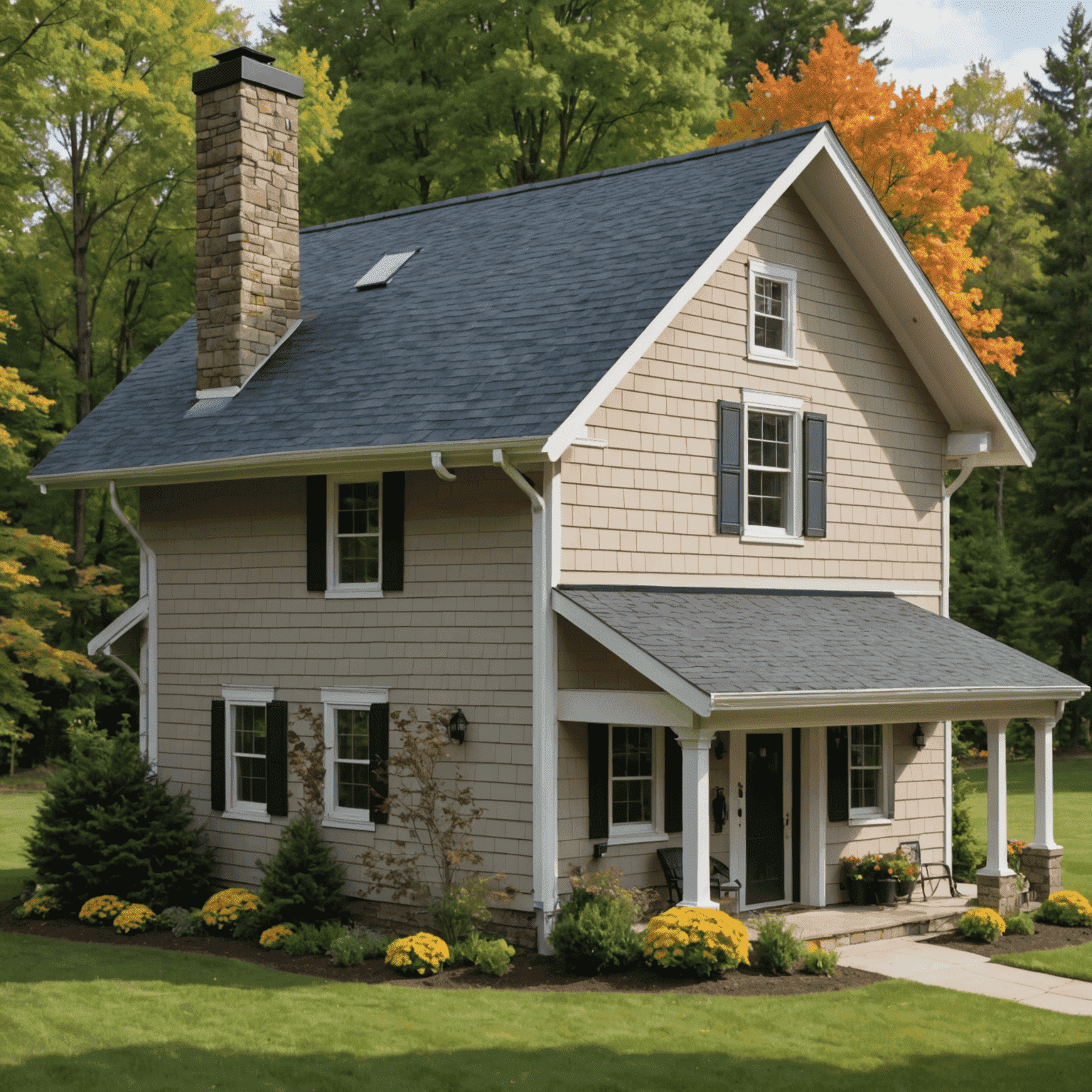
5. Grade Your Landscape
Proper grading is crucial for effective drainage:
- Ensure your yard slopes away from your home's foundation, with a drop of about 6 inches over a distance of 10 feet.
- Use a level and stakes to determine the current grade of your yard.
- Add soil to low areas and remove soil from high spots to create the proper slope.
- Compact the soil and add grass seed or sod to prevent erosion.
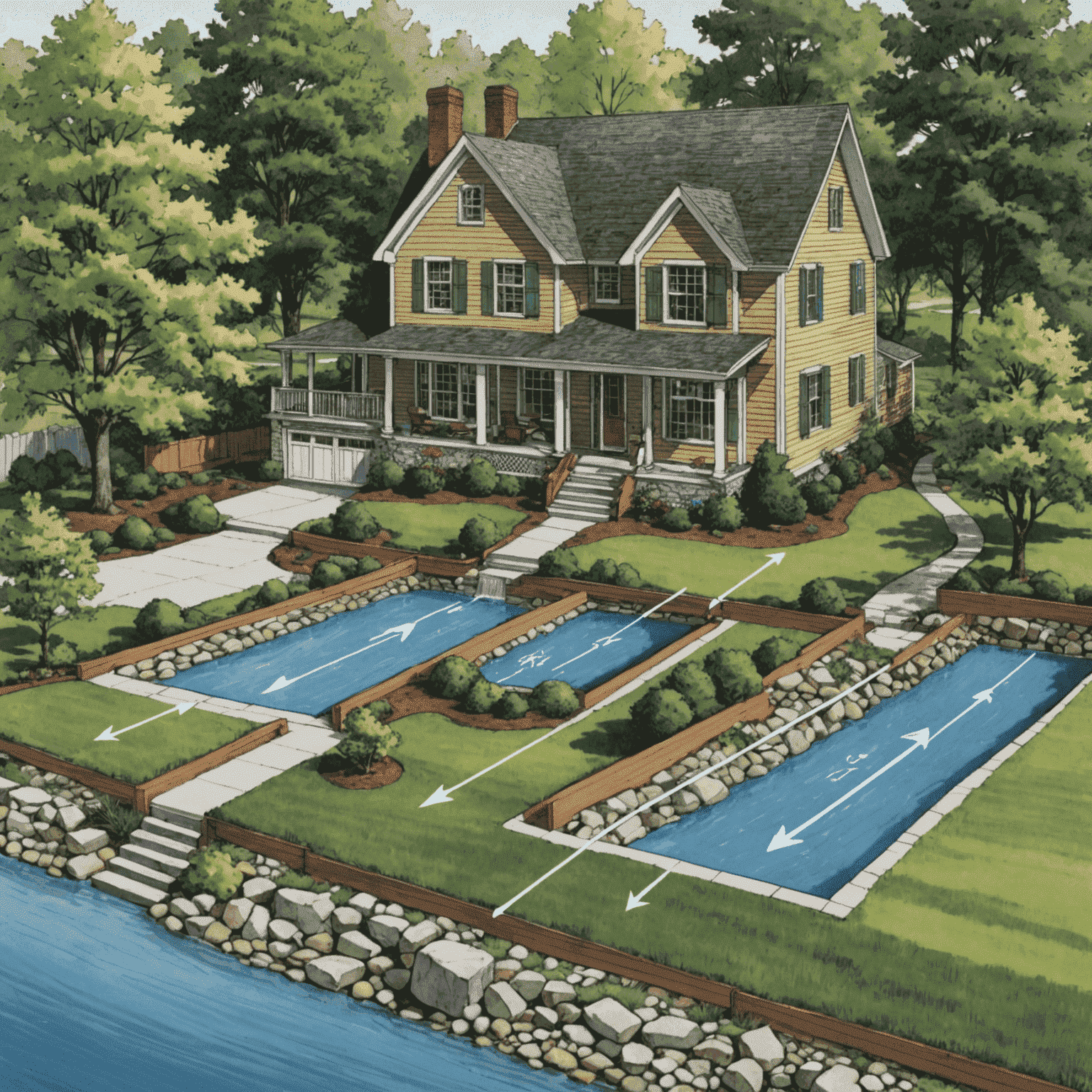
Conclusion
By implementing these homemade landscape drainage solutions, you can significantly improve your yard's ability to manage water and protect your home from potential water damage. Remember, the key to successful drainage is to work with your yard's natural slope and features. With a little effort and planning, you can create a beautiful, functional landscape that stays dry and healthy year-round.
"A well-drained yard is the foundation of a healthy, beautiful landscape. Don't wait for water problems to worsen - take action today!"
Remember: Always check local regulations and call your utility companies before starting any digging projects. If you're unsure about tackling these projects yourself, don't hesitate to consult with a professional landscaper or drainage expert.